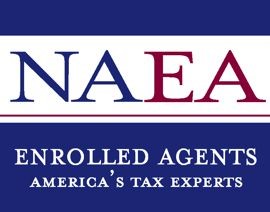NAEA’s Efforts Help Build Awareness of Enrolled Agents
In recent years, the NAEA has been pivotal in protecting those who hold the EA designation, especially in states that previously did not allow an EA to advertise his or her credential. The NAEA is doing a good job of raising public awareness of EAs ...
Sep. 28, 2017

In the past few years, the National Association of Enrolled Agents (NAEA) has bought online ads on several social media platforms to reintroduce Americans to the profession of an enrolled agent (EA). These ads were used to drive traffic to the NAEA’s website, as well as to help taxpayers find an EA in their community.
In recent years, the NAEA has been pivotal in protecting those who hold the EA designation, especially in states that previously did not allow an EA to advertise his or her credential. The NAEA is doing a good job of raising public awareness of EAs, and it was again on the forefront of current events with its recent press release, Five Tax Tips to Mitigate the Financial Impact of a Natural Disaster. The press release was both timely and informative for both consumers and the tax professional community. It discusses the ins and outs of the casualty and theft loss deduction, in light of the recent hurricanes that have ravished the U.S. mainland and Puerto Rico.
What is an Enrolled Agent?
Believe it or not, the EA designation dates back to the Reconstruction Period, after the Civil War ended in the late 1800s. EAs were hired to negotiate land disputes between the U.S. government and landholders. With the passage of a national income tax in the early 1900s, the focus of the EA shifted to the representation of taxpayers before the newly created Internal Revenue Service (IRS). EAs are the only federally licensed professionals who can represent a taxpayer, without limitation, before all administrative levels of the IRS. Unlike their counterparts, all EAs specialize in taxation.
How is an EA Different From a CPA?
A CPA is a jack-of-all-trades. Some CPAs specialize in taxation, but a majority focus on auditing, compiling, and reviewing financial statements for businesses. CPAs have a national association, the American Institute of CPAs (AICPA), which plays an integral part in the formulation of the Uniform CPA Examination, which is taken by most accounting majors. After passing the exam, the CPA will receive a license from the state in which he or she plans to practice as a CPA.
On the other hand, EAs take the Special Enrollment Examination, which is administered by the IRS. The test focuses on taxation of individuals and businesses. I like to compare a CPA to a family doctor and an EA to a specialist. Whereas some CPAs focus their practices on taxation, all EAs focus on taxation.
Most people know the CPA designation, while others are starting to learn that there is an alternative out there. The NAEA has made it its mission to educate the public about the EA profession and to advocate on behalf of EAs on legislative and administrative issues. For example, the NAEA lobbies Congress on changes to the tax code, and congressional leaders turn to the NAEA to measure the pulse of the tax professional community.
I have been an EA since 2000 and a member of the NAEA for the past 17 years. I also have been a provisional member of the AICPA since 2010. Both organizations, and both professions, are needed. I became an EA because I had no interest in auditing, compiling, or reviewing financial statements. My focus is on taxation and tax planning for small- to medium-sized businesses all over the country. I am not hampered by only being able to practice in a particular state.
Concerns about a CPA being more qualified than an EA, and vice versa, shouldn’t be an issue. I have met a lot of CPAs who specialize in taxation who know their specialization inside and out. However, the general public, and perhaps maybe even you, now knows that there is an alternative out there, thanks to the efforts of the NAEA.
